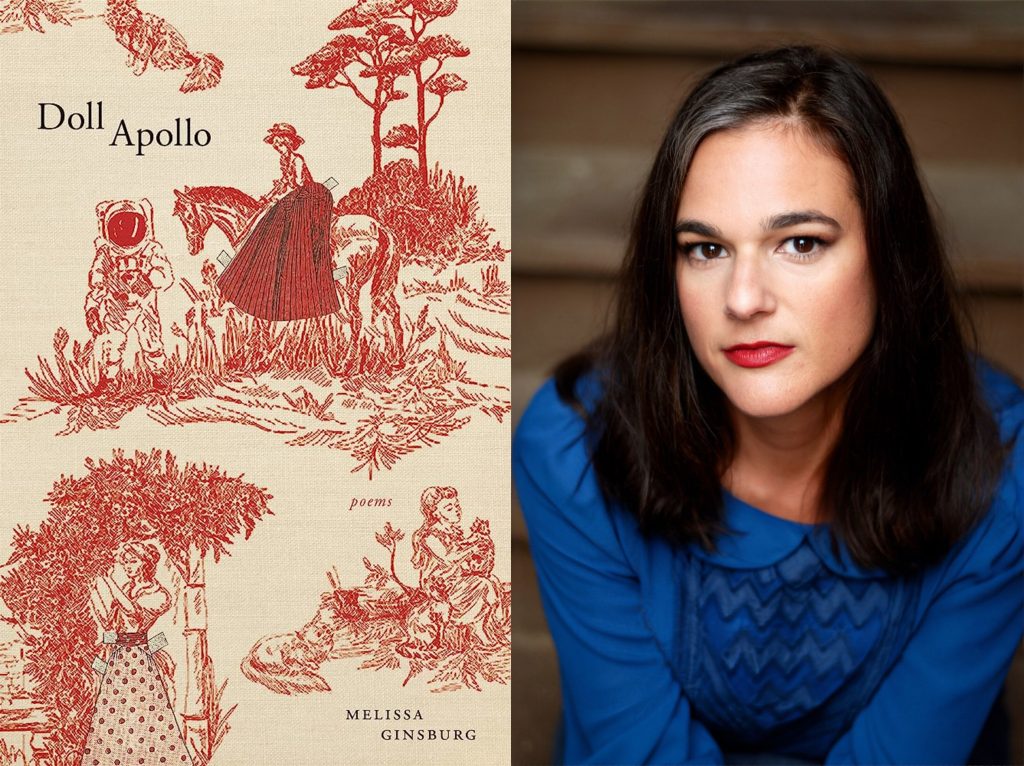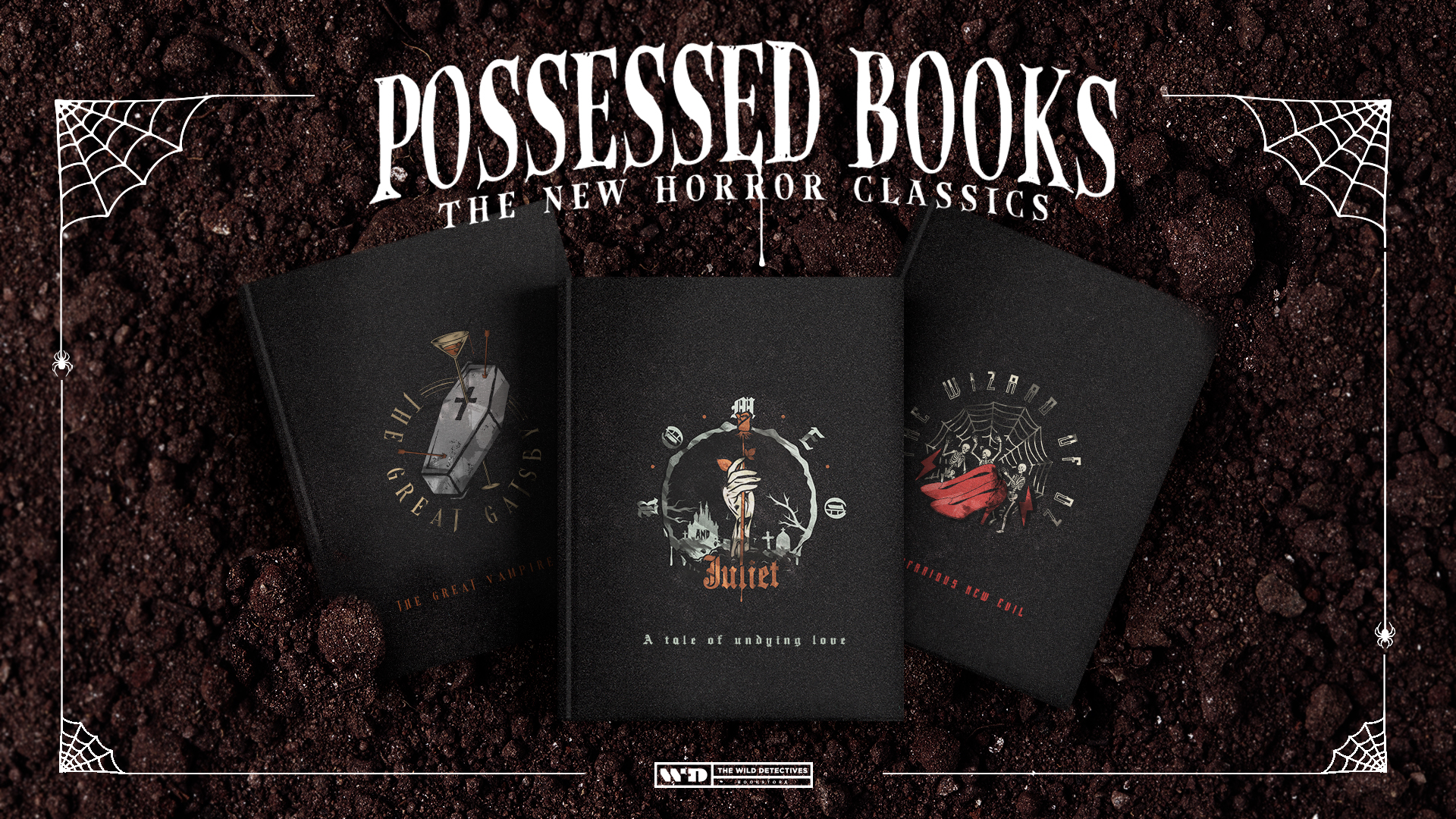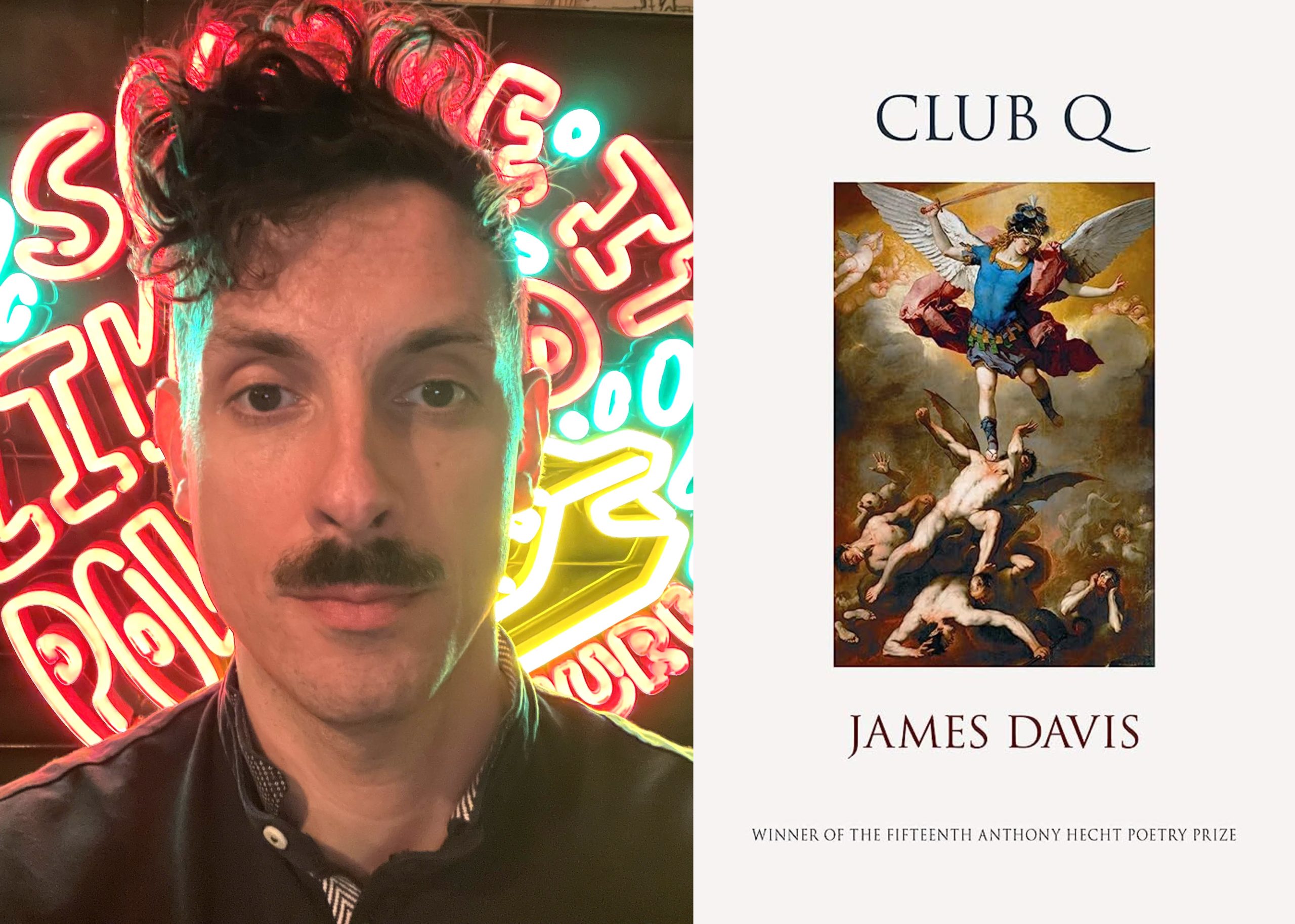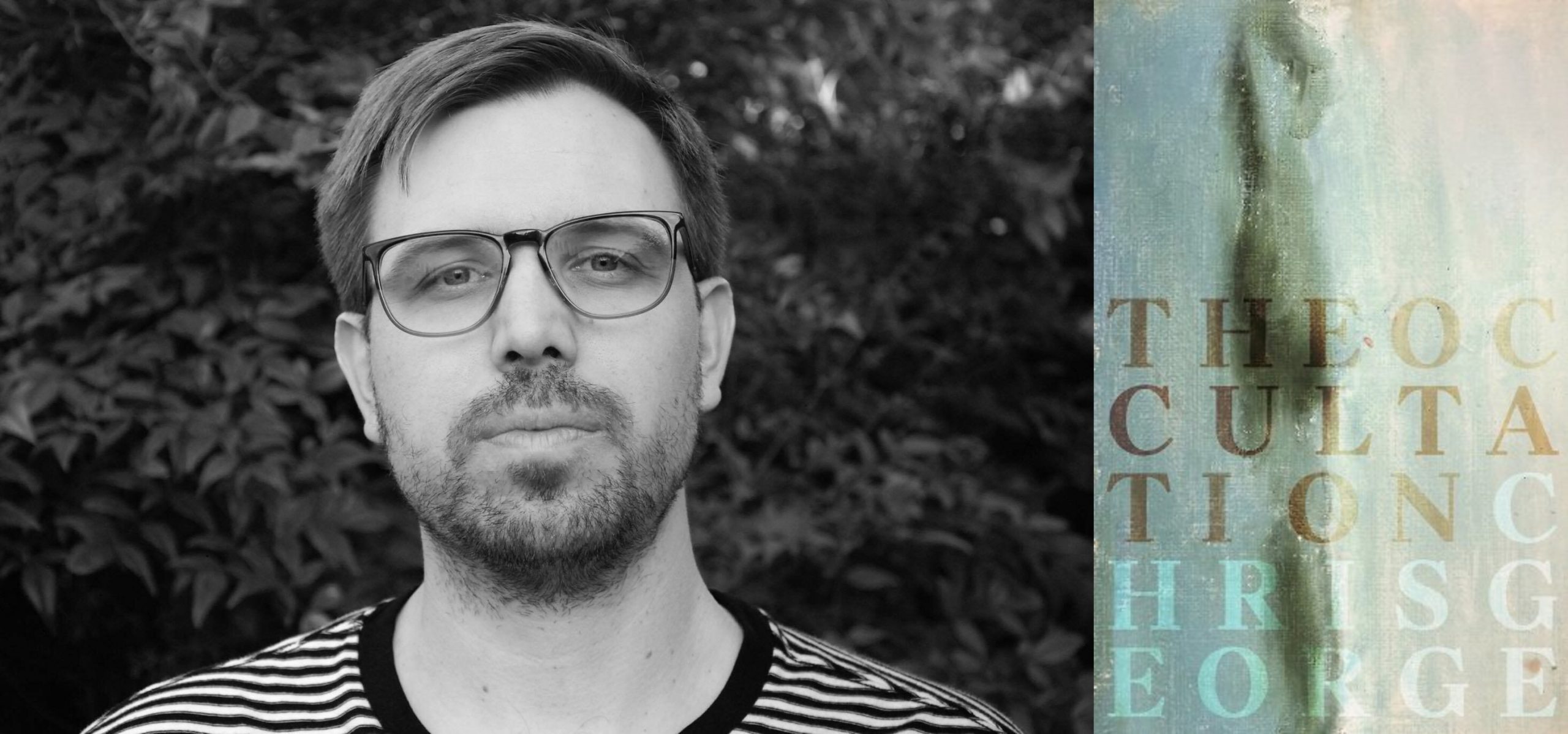Melissa Ginsburg’s Doll Apollo (LSU Press, 2022) resists conventional narrative notions. Organized in three sections, “Doll,” “Apollo,” and “Toile,” the book explores identity, doubt, mythology, and violence, both bodily and environmental, in poems linked by the lush imagery of a common landscape. “Toile” refers to a canvas-like fabric that depicts pastoral vignettes and it is a popular decorative element, particularly in the U.S. South. The gorgeous cover art for the book includes a toile pattern that reflects the unique concerns of Ginsburg’s poems, mingling an unexpected astronaut with paper dolls in the traditional pastoral background.
Melissa Ginsburg’s Doll Apollo (LSU Press, 2022) resists conventional narrative notions. Organized in three sections, “Doll,” “Apollo,” and “Toile,” the book explores identity, doubt, mythology, and violence, both bodily and environmental, in poems linked by the lush imagery of a common landscape. “Toile” refers to a canvas-like fabric that depicts pastoral vignettes and it is a popular decorative element, particularly in the U.S. South. The gorgeous cover art for the book includes a toile pattern that reflects the unique concerns of Ginsburg’s poems, mingling an unexpected astronaut with paper dolls in the traditional pastoral background.
The book opens on a poem entitled “Daphne,” which appears before the three sections, like an invocation. Daphne is, of course, the mythological character who transformed into a tree to avoid sexual violence: “halted mid stride / un-nymphed as mayflies / laureled & wreathed // newly rooted.” The book is rife with images of trees, with each iteration offering a new angle. Throughout the book, trees highlight the connections between the body and the earth, and the dark reality of survival in the face of violence.
The first section, “Doll,” focuses on paper dolls, both fashion dolls and garlands of connected dolls. These poems interrogate embodiment, relationships between women, and creating an identity given stifling constraints. The speaker in “Paper Dreams” says, “Doll paper dreams tabs-in-slots, / Dreams the sheet // From which / She was punched. // How close it felt to free, / Uniting all those tiny holes // To outline / Her in air.” In our conversation during her live performance, Ginsburg pointed out to me that paper is, in fact, a three-dimensional object, it’s just very thin, and if you look closely, it is made up of intricate layers. I’ve thought about that a lot since, and her poems demonstrate that careful attention to layers, subtly, and textures.
The second section, “Apollo,” explores the mythological god Apollo (featured in Daphne’s story), the moon landing (and the surrounding conspiracies), and the moon itself. These poems unfold in the same landscape as all the previous poems, as evidenced by the continued threads of lush imagery haunted by violence: “Wolf god. Sheep god. God trapped in a mine. God of fields and flowers. Of pastures and herds. God of exoskeletons. Hunter and flayer, feeder of snakes. Healer god of arrows, of oracles you will never figure out. God of colonies and the crying rock. Unshorn god. Shining god of mice and islands” (“Apollo”). I was fascinated to learn that the poems in this section are also a limited edition handmade chapbook published by Condensery Press, aptly titled Apollo. I think a lot about the chapbook form, especially in relation to the full-length collection, and these two publications offer a compelling example of what that can look like.
The final section, “Toile,” invites readers into pastoral vignettes set in the same landscape as the rest of the book. The poem “Night” shows us: “A pond disrupts the field / like a smoke break a night shift: flicker // of light, moon leaning on the bank, small fire / doused in the flush surface. // As the makers of night make night, / as night is time and ends, this world drowns // its workers, the makers of the world.” These poems are beautiful and meditative while maintaining the threads of violence and doubt from the previous sections. I admire Ginsburg’s ability to craft a cohesive collection out of seemingly disparate subjects, showcasing the rich possibilities of poetry. Doll Apollo is surprising and gorgeous, full of poems that stick with me. You should read it.
Listen to the podcast episode: https://spotifyanchor-web.app.link/e/yhn8OJf1EAb
Link to the book: https://lsupress.org/books/detail/doll-apollo/






